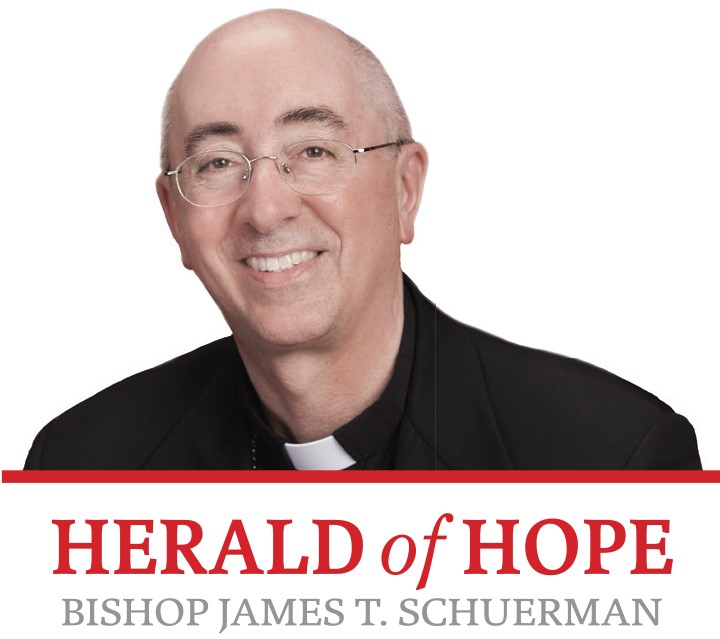The prophet Micah lived in the eighth century B.C., and was a contemporary of the prophets Isaiah, Amos and Hosea. He was from the Judean lowlands, from the village of Moresheth. His teachings centered on themes of social justice and the impending Assyrian invasion.
Micah confronted the injustices of his time and those who exploited the poor – dishonest merchants, crooked judges and unprincipled religious leaders. Many of the priests and prophets of that time were as corrupt as other powerful, wealthy figures who took advantage of the underprivileged. While religious ritualism flourished, the leaders ignored religious ethics. Micah could not keep silent in the face of social sin. He championed the cause of the poor, the oppressed and the underprivileged of his time.
Chapters 6 and 7 of the Book of the Prophet Micah are written as a courtroom scene with the Lord, who has remained faithful to his covenant, as the plaintiff accusing Israel, who has strayed from his laws and acted unjustly. In this section of the book, Israel asks what kind of sacrifices it must offer to appease God. God answers Israel, making it clear that true religion is not a matter of offering sacrifices and holocausts: “You have been told, O man, what is good, and what the Lord requires of you: Only to do the right and to love goodness and to walk humbly with your God.” (Micah 6:8) To do the right is to act justly; to love goodness is to act not out of duty but out of love; to walk humbly with God is to live in union with the Lord and to serve him.
In 2018, the Committee on Cultural Diversity in the Church of the United States Conference of Catholic Bishops published the document, Open Wide our Hearts: The Enduring Call to Love – A Pastoral Letter Against Racism. The committee structured part of the document around Micah’s themes of justice, goodness and humility.
The pastoral letter speaks about racism in this way: “Racism arises when – either consciously or unconsciously – a person holds that his or her own race or ethnicity is superior, and therefore judges persons of other races or ethnicities as inferior and unworthy of equal regard. When this conviction leads individuals or groups to exclude, ridicule, mistreat, or unjustly discriminate against persons on the basis of their race or ethnicity, it is sinful. Racist acts are sinful because they violate justice. They reveal a failure to acknowledge the human dignity of the persons offended, to recognize them as the neighbors Christ calls us to love.” (Matthew 22:39) (Page 3 of the downloadable version of Open Wide Our Hearts.)
In the section titled “Do Justice,” the document emphasized that a nation can be just only when it respects the legitimate rights of people. These rights flow from the God-given dignity granted to each human person. Justice, in the original meaning of the word, is living in right relationship with God and all creation.
This section of the pastoral letter uses examples from the Native American experience, the African American experience and the Hispanic experience to describe the historical discrimination, mistreatment and abuse of peoples of different races within our American context. The document notes there has been limited acknowledgement of the harm done to these people, and no national process of atonement and reconciliation. As a nation, we have not spent sufficient time examining racist attitudes of the past that have become part of our policies, practices and perceptions in this present time, and how they have become ensconced in our social structures. A way that we can begin to address this is to listen to the stories of individuals and groups who have experienced racism. Being open to hearing the effects of racism on others can help us to begin to act in solidarity with them and work for change.
The theme of Christian love is the subject of the section titled “Love Goodness.” The pastoral letter reminds us how important it is for each of us to examine our attitudes on race. Do our attitudes reflect the fruits of the Spirit, such as love, kindness and generosity? Or, do they reflect mistrust, anger and discomfort? We fail to love when we unjustly separate people in our minds and see some as “us” and others as “them.”
Love compels us to resist racism and to reach out to its victims. Justice demands overcoming racism, but love transcends justice. Ending racism includes fair treatment of all, to be sure, but it also means the building up a society in which diverse peoples enrich each other with their own particular gifts.
In the section titled “Walk Humbly with God,” the key word is “transformation.” Racism is a problem that requires a moral remedy. That remedy is conversion, a transformation of heart that inspires us to act. This includes acknowledging sin as individuals, as a Christian community and as a society. It also includes being open to encountering those different from ourselves, entering into dialogue with them and forging relationships. It is in this way that we begin to see each other as Jesus Christ sees us.
At this time, as our nation is being challenged to examine individual and systemic racism and to work for change, I would urge everyone to read and reflect upon Open Wide Our Hearts. This document calls all of us to do justice, to love goodness and to walk humbly with our God.
To see a copy of Open Wide Our Hearts, go to http://usccb.org/issues-and-action/human-life-and-dignity/racism/upload/open-wide-our-hearts.pdf.
